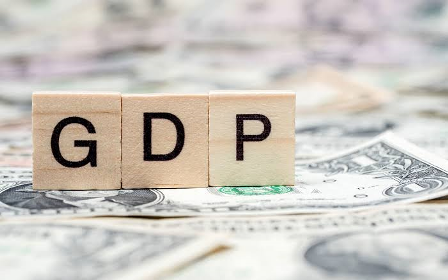
Concern for consumers with latest GDP figures
By: Ashley Lechman - Business Report
South Africa’s ailing economy increased by a minuscule 0.1% in the fourth quarter of 2023.
This was according to Statistics South Africa (Stats SA), which released the country’s gross domestic product (GDP) data on Tuesday for the last quarter of 2023, showing that the economy grew by a marginal 0.1% in the fourth quarter and taking the annual growth rate for 2023 to 0.6%.
Stats SA said real gross domestic product (GDP) in the fourth quarter was R1.158 trillion. This is above the pre-Covid-19 reading of R1.15trl, but still below the peak of R1.161 trillion recorded in the third quarter of 2022.
In the fourth quarter, six of the 10 industries kept the economy in the green. The transport, storage and communication industry made the biggest positive impact, expanding by 2.9% and contributing 0.2 of a percentage point to the GDP growth. Increased economic activity was reported for all transport services across the industry.
The energy crisis in the country, one of the main factors of slowing down the economy, showed positive growth in the fourth quarter.
Stats SA said: “Electricity, gas and water scored a second consecutive quarter of positive growth, expanding by 2.3%. The country experienced fewer days of load shedding in the fourth quarter (63 days) compared with the third quarter (91 days), with the rise in electricity production and consumption reflecting positively in the GDP numbers.”
Neil Roets, the CEO of Debt Rescue, voiced significant concerns over the latest GDP figures.
Roets told Business Report: “This slow growth barely moves past pre-Covid-19 levels, reflecting a fragile economic recovery with a mixed sector performance. Of particular concern is the agricultural sector’s sharp downturn, potentially leading to increased food prices and heightened financial strain on ordinary South Africans.
“The resilience seen in sectors like finance and real estate does little to offset the broader economic challenges that threaten the livelihoods of many.”
He said the stark decline in agriculture, the most significant since 1995, highlighted the urgency for strategies to mitigate these impacts on the population, particularly those already facing personal financial distress.
“There is a critical need for collaborative efforts between the government and the private sector to address these challenges head-on. Prioritising innovations, skill development, and support for small businesses is essential.
“The modest GDP growth is not just a number – it’s a call to action to ensure economic policies and initiatives are inclusive and supportive of all South Africans, especially those vulnerable to financial distress. This concerted effort is vital for navigating the path to a more stable and prosperous economic future,” Roets further said.
Abigail Moyo, the spokesperson of the trade union Uasa told Business Report, “While we remain hopeful for improved economic development and growth to sustain our GDP, Uasa firmly reminds the government of the crucial need to tackle the energy crisis. We stand on the verge of economic disruption without sustainable access to a stable energy supply.”
“Following economic trends across the board, Uasa is also concerned about the progress of our economic sectors. Last year proved challenging for consumers, and 2024 is sketchy. A few months into the year, load shedding at variable levels is still with us, the unemployment rate remains high, real interest rates remain high, inflation and fuel price hikes are walloping workers, and political uncertainty awaits us ahead of the general elections,” Moyo further added.
Frank Blackmore, Lead Economist at KPMG SA, said, “Economic growth came in close to forecast which was always going to be around 0.6% level. The impact is not going to be large in order to reduce unemployment and poverty, and being able to grow the economy that we need for high growth rates. The population of South Africa grows at around 1.5%. So, anything above that rate, we're starting to absorb additional labour into the economy, and we should be aiming for a lot higher, possibly around the 5% that was mentioned by the National Planning Commission.“
News Category
- International retailers
- On the move
- Awards and achievements
- Legislation
- Wine and liquor
- Africa
- Going green
- Supplier news
- Research tools
- Retailer trading results
- Supply chain
- Innovation and technology
- Economic factors
- Crime and security
- Store Openings
- Marketing and Promotions
- Social Responsibility
- Brand Press Office
Related Articles

Empowering South African households through gro...

SPAR shares practical tips to beat food inflation

South African motorists could be paying up to R...

Big VAT changes on the cards


